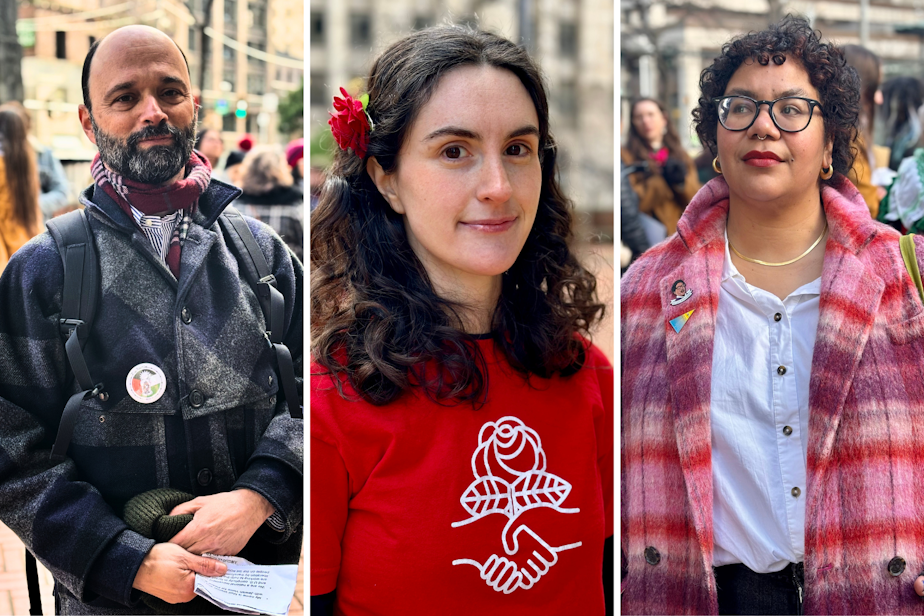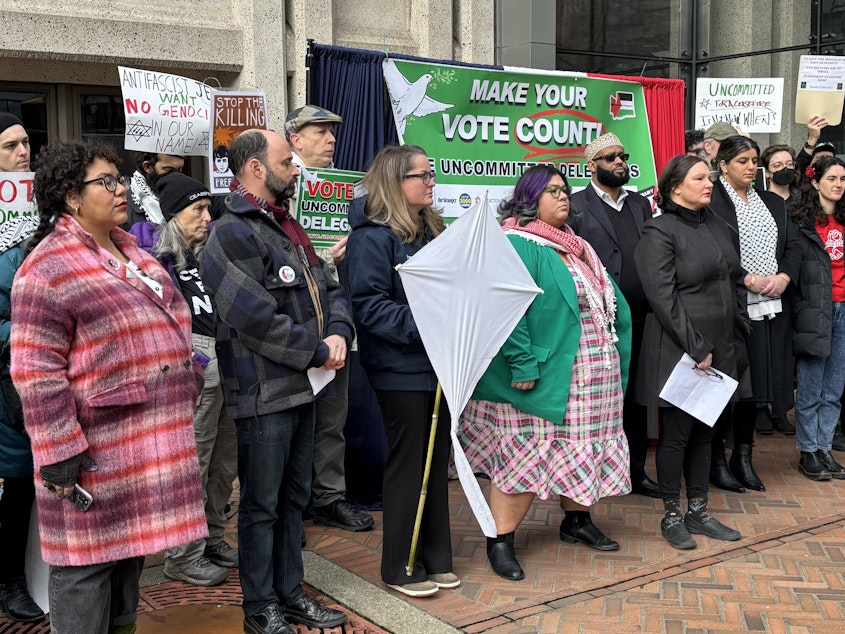How did Washington's 'uncommitted' voters do on presidential primary night?
President Joe Biden and former President Donald Trump took early, decisive leads in their respective primary races in Washington state. As of Tuesday night, both candidates had also clinched enough delegates in other states to be the presumptive Democratic and Republican nominees – again.
The first drop of primary results from the Washington Secretary of State's Office on Tuesday night showed Biden with about 86% of the Democratic primary vote and Trump with about 74% of the Republican vote.
Despite Biden's lead, an effort to get Washington state Democrats to vote for "uncommitted delegates" earned about 7.4% of the Democratic primary vote on Tuesday.
RELATED: Washington state's 2024 election results
More than 48,000 Democratic voters cast ballots for "uncommitted delegates," amplifying an effort to send Biden a message: that they will not support the president unless he calls for a permanent ceasefire in Gaza. The Israeli military has killed more than 30,000 people in Gaza in the months since Hamas militants killed 1,200 civilians in southern Israel on Oct. 7.
Washington state's primary election results are not yet final. Polls closed at 8 p.m. Tuesday, and many more votes have yet to be counted.
RELATED: These Washington Democrats are voting 'uncommitted' to send message to Biden
The Washington State Democratic Party posted a statement on X, formerly known as Twitter, congratulating Biden.
The chair of the Washington State Republican Party, Jim Walsh, celebrated strong Republican turnout on Tuesday – and took a swipe at the "uncommitted" campaign, calling it a "striking failure."
The "uncommitted" movement began in Michigan, where more than 100,000 Democratic voters chose that option. It's grown from there. More than 250,000 more people voted "uncommitted" in the Super Tuesday primaries last week.

"This was a movement about trying to get the president and the establishment [Democrats] to listen to their voting base," said Kristina Beverlin with the Washington state coalition that called for "uncommitted" votes. "It's not about trying to deny [Biden] anything. It's about trying to get him to hear our voices."
Washington's "uncommitted" coalition includes Palestinian Americans, Jews, Muslims, members of the East African community, labor activists, and others who want an end to the war in Gaza. The presidential primary also happened to occur during Ramadan, the holiest month on the Islamic calendar.
Faheem Khan, a lead organizer of Washington's "uncommitted" coalition, said Ramadan is a month to spread peace around the globe.
"To be spreaders of peace during this month while Palestinians are being subjected to so much unthinkable violence underscores why a vote for Uncommitted Delegates, a vote to send a message to the president that his policies need to change, is seen as a vote that will save lives and establish justice," Khan said in a statement to KUOW.
NPR asked the Biden campaign about the "uncommitted" movement after Super Tuesday.
Sponsored
"The President believes making your voice heard and participating in our democracy is fundamental to who we are as Americans," Biden campaign spokesperson Lauren Hitt said in a statement to NPR.

"He shares the goal for an end to the violence and a just, lasting peace in the Middle East," Hitt added. "He's working tirelessly to that end."
But the "uncommitted" coalition in Washington state has not been satisfied, and hopes voters in other states won’t be either as the primaries continue, even if Biden is now the presumptive nominee.
Beverlin, with Washington’s “uncommitted” coalition, said the group is feeling good about the number of state Democrats who turned out to support the movement nonetheless.
Sponsored
A spokesperson for the Washington Secretary of State's Office said they are expecting another batch of results on Wednesday afternoon.
Editor's note: KUOW's Chief Digital Officer Rami Al-Kabra is also the elected deputy mayor of Bothell and a spokesperson for the "uncommitted” campaign. His work at KUOW is not related to his work as an elected official and he has no involvement in KUOW's news gathering.




